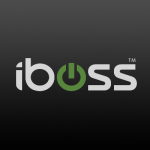What is our primary use case?
The solution is predominantly used for Internet access when mobile. In the office, we have already deployed a Quantum Spark appliance, and this was focused on mobile users.
We don't have on-premise applications or servers, so there is no use case for Remote access. However, we were keen to try it out from an evaluation perspective by bridging to the existing Check Point gateway at the site.
Simplicity was needed, and importantly, we wanted something to not be too intrusive to mobile users. The interface has a few simple options, and it makes it easier.
How has it helped my organization?
We believe in defense in depth, and Harmony connect SASE adds another layer of protection for internet access.
We have already deployed the entire Harmony suite, from Email & Collab protection to Harmony Endpoint. This adds a layer on top. Being a mobile user, securing Internet access was very important, and the product's pricing was simple enough and unlike other multiple add-ons on top of the base products from other vendors.
The reports give a simple overview of the traffic pattern within the organization. Though we don't use it to track user productivity, we can if necessary. There are reports specific to SaaS applications as well, which do come in handy.
What is most valuable?
The simplicity is good. It's good for consolidating security and being manageable from the Infinity portal with other Harmony solutions and makes management easy. We can use this instead of managing multiple-point solutions. It has a unified policy for private and internet access, making it easier to manage policies.
The weekly reports have been informative as well. We are also keen on trying clientless access to provide restricted access to applications for third-party users.
Deployment was a breeze. We just key in the target users' email, and the rest is easy.
What needs improvement?
Branding could be better. Not many Check Point users realize there is a SASE offering at all. Policies could have layers as they do with their Firewalls, though I understand that's more of a functionality within the Smart dashboard. The threat prevention profiles like IPS, file, and URL protections could have more fine-tuning options.
Though all the policies are managed from the Infinity portal, we still have to manually configure different solutions. It would be nice to know how the new XDR option will bridge this gap.
Also, for Multi-factor authentication, there was an option for G-auth. However, I'm not sure about other forms of authentication they offer in their gateways. Bringing the backend closer to the gateway management would make it more granular.
For how long have I used the solution?
I've been using Harmony Connect for more than three months now.
What do I think about the stability of the solution?
We haven't had any glitches or issues with it at all. It's very transparent to the user.
What do I think about the scalability of the solution?
It's very scalable and easy to deploy. It's scalable with users and it's scalable with the existing CP gateway deployments as well. There isn't much information on how it integrates with other end-point solutions. We had a full Check Point environment and it was clean.
How are customer service and support?
We haven't run into any issues so far. We did need some assistance during the initial policy configuration, and the Check Point solutions team was there to assist.
How would you rate customer service and support?
Which solution did I use previously and why did I switch?
We did not use any other SASE offering before.
How was the initial setup?
It's a simple setup; we just key in the end user's email address and it sends an invite to download the client.
What about the implementation team?
We implemented it in-house with the assistance of Check Point's solutions team.
What was our ROI?
The ROI is better than using a traditional VPN to connect back to the office gateway. We needed something that was light and transparent without the hassle of having to connect manually. We aren't planning to remove the gateway yet, however, in the long run, we will consider it, and that should negate the gateway costs.
What's my experience with pricing, setup cost, and licensing?
Setup is a breeze. You key in the target user's email, and the rest is a click away. Pricing is competitive compared to the top players in the SASE market.
Also, there is no concept of add-ons which makes it easier.
Licensing with a minimum of 50 users could be a show-stopper for smaller organizations. However, a small company has probably got to do it with the infra in the backend to make it worthwhile.
Which other solutions did I evaluate?
Since we were keen on consolidating, we did not focus on multiple options.
What other advice do I have?
The product seems to be transparent to the users. It lacks application segmentation options which some competitors offer.
Which deployment model are you using for this solution?
On-premises
Disclosure: My company has a business relationship with this vendor other than being a customer. We are Checkpoint Distributor as well but the comments are based on my experience with the product.



















How many devices does our customer have on average? They should use Harmony.